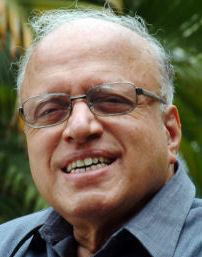Interview with Professor M S Swaminathan, founder and chairman of the MS Swaminathan Research Foundation in India

Professor Monkombu Sambasivan Swaminathan is a man who has gifted much to the world. A world-renowned Indian agricultural scientist, he is widely known in his home country as the "Father of the Green Revolution".
Swaminathan earned this soubriquet following the groundbreaking work he did as a plant geneticist in the 1960s — work that led to the development of hybrid wheat seeds capable of producing yields three times higher than was previously possible.
This was nothing less than a gift of life for his countrymen who, in the aftermath of WWII, found themselves unable to grow enough food to feed their burgeoning population, and so had to live a "ship-to-mouth" existence, subsisting on food grains imported from the US.
Born in Tamil Nadu in 1925, Swaminathan obtained degrees in zoology and agricultural science, and then moved to New Delhi to study cytogenetics; subsequently he undertook research in the Netherlands, at the UK's Plant Breeding Institute, and then at the University of Wisconsin.
At this point in his career Swaminathan could have settled for a comfortable academic life in the US. Instead he chose to return to India. As he put it in 1999 to TIME magazine, "I asked myself, why did I study genetics? It was to produce enough food in India. So I came back." ...
####
If you wish to read this interview please click on the link below. I am publishing it under a Creative Commons licence, so you are free to copy and distribute it as you wish, so long as you credit me as the author, do not alter or transform the text, and do not use it for any commercial purpose.
Please note that while I make this interview freely available to all, I am a freelance journalist by profession, and so make my living from writing. To assist me to continue making my work available in this way I invite anyone who reads this interview to make a voluntary contribution.
I have in mind a figure of $8, but whatever anyone felt inspired to contribute would be fine. This can be done quite simply by sending a payment to my PayPal account quoting the email address richard.poynder@btinternet.com. It is not necessary to have a PayPal account to make a payment.
What I would ask is that if you point anyone else to the interview then you consider directing them to this post, rather than directly to the PDF file itself.
If you would like to republish the article on a commercial basis, have any comments on it, or would like to discuss an alternative payment method please e-mail me at richard.poynder@btinternet.com.
To read the full interview (as a PDF file) click here.
An HTML version of the interview is available here.











